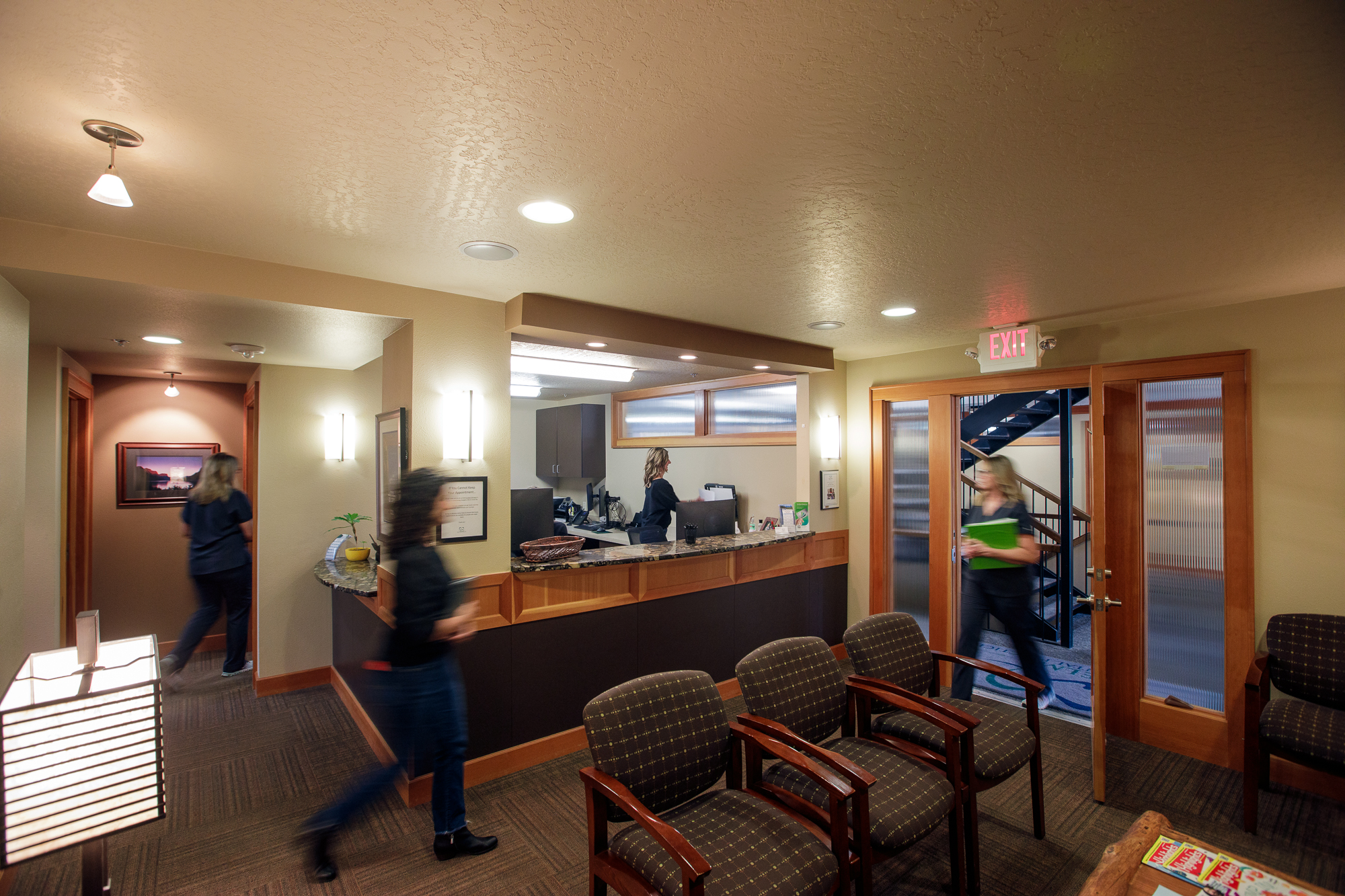
Broken Teeth
Teeth are remarkably strong, but they can chip, crack (fracture) or break. This can happen in several ways:
Biting down on something hard
Being hit in the face or mouth
Falling
Having cavities that weaken the tooth
Having large, old amalgam fillings that don’t support the remaining enamel of the tooth
When a tooth chips or breaks, it may not hurt. However, your tongue usually feels the sharp area quite quickly. Minor tooth fractures usually don’t cause pain, but if a large piece of the tooth breaks off, it can hurt. The nerve inside the tooth may be damaged. Extreme discomfort also can happen when nerve endings in the dentin are exposed to air, or to hot or cold foods or drinks.
Pain from a broken or cracked tooth may be constant or may come and go. Many people feel pain when they chew because chewing puts pressure on the tooth.
What You Can Do
Cracked (Fractured) Teeth: There is no way to treat a cracked tooth at home. You need to see your dentist. Sometimes the tooth looks fine, but it hurts only when you eat or when the temperature in your mouth changes (because you drank something hot or cold, for example). If your tooth hurts all the time, it may have a damaged nerve or blood vessels. This is a serious warning sign. You will know if you have a cracked tooth if it does not hurt to bite on the tooth, but pain occurs when you release the bite.
Broken Teeth: If you have a broken tooth, see your dentist as soon as possible. Your dentist can figure out if the break was caused by a cavity, and if the tooth’s nerve is in danger. A damaged nerve usually will require root canal treatment.
Until you get to the dentist’s office:
- Rinse your mouth well with warm water.
- Apply pressure with a piece of gauze on any bleeding areas for about 10 minutes or until the bleeding stops. If this doesn’t work, use a tea bag with pressure on the area to stop the bleeding.
- Apply a cold pack to the cheek or lips over the broken tooth. This will help reduce swelling and relieve pain.
- If you can’t get to your dentist right away, cover the part of the tooth that is in your mouth with temporary dental cement. You can find this at a drugstore.
- Take an over-the-counter pain reliever.
What Your Dentist Will Do
There are several types of tooth fractures and breaks, each of which requires different treatments. These include:
Minor cracks: Also called “craze lines,” these are surface cracks that affect only the outer white surface of the tooth, called the enamel. Minor cracks rarely need treatment. However, your dentist may lightly polish the area to smooth out any rough spots.
Cracked tooth: This type of fracture involves the whole tooth, from the chewing surface all the way down to the nerve. The pieces remain in place, but the crack gradually spreads. Cracks can sometimes be repaired with filling material. The tooth often will need a crown to prevent the crack from getting worse. If the pulp (nerve and other live tissues) is damaged, you may need a root canal as well.
Chips: Minor chips don’t always need treatment. Your dentist may suggest repairing the damage with filling material to prevent it from getting worse or to make the tooth look and feel better. If the chip is very small, the dentist may polish and smooth out the chipped area.
Broken cusp: These breaks affect the pointed chewing surfaces (the cusps) of the teeth. They usually do not affect the pulp and are unlikely to cause much pain. Your dentist may repair the damage to restore the tooth’s shape. Frequently, however, an onlay or crown will be required.
Serious breaks: These breaks go deep enough to expose the nerve. They almost always cause the tooth to hurt and be sensitive. Usually, the broken part of the tooth will bleed. You will need root canal treatment to remove the exposed nerve and probably a crown to restore the tooth to normal function so you can eat and chew properly.
Split tooth: This means that the tooth has split vertically into two separate parts. Some teeth, such as your back teeth (molars), have more than one root. It may be possible to keep one of the roots, which will then be covered with a crown. First, you will need root canal treatment. Second, the dentist will remove any roots that cannot be kept. Third, you will need a crown to cover the root and replace the tooth. In some cases, when a root cannot be saved, the tooth will have to be removed.
Vertical breaks or split root: These cracks start in the root of the tooth and extend upward toward the chewing surface. These breaks are often painful because the area around the root may be inflamed or infected. In most cases, the tooth will have to be removed.
Decay-induced break: In this case, the tooth has broken or crumbled because a cavity weakened it from the inside out. Your dentist will evaluate the cavity and recommend the best way to restore the tooth. In some cases, if the decay is extensive and goes down to the bone,the tooth may have to be removed.